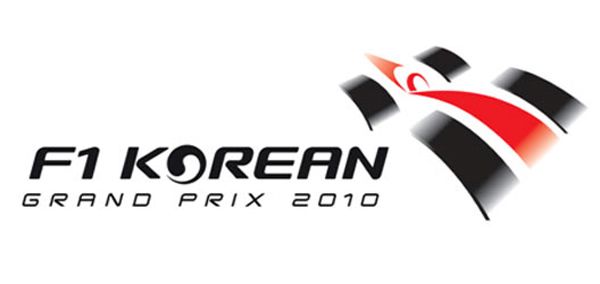 | ||
| The logo for the Korean GP- but will we ever see the accompanying race? |
Korea's plans have not been put into jeopardy by the FIA. They haven't been put into jeopardy by the government, no matter how much funding they refuse to put into the building of the track. They have, however, been put into jeopardy by the simplest of things: weak organisation and a lack of action. As mentioned, it was four years ago we were looking ahead to a future race in Korea; although it wouldn't entirely have been true that work had to start from that moment, it was clear the organisation needed for an event like this was a big one, and something that clearly hasn't worked.
The dithering over the Yeongnam Circuit's completion is becoming embarrassing, for both parties. The excuses, coming in fits and starts, have began to sound like those a schoolboy trying to explain his lack of homework to an unwilling teacher would use: 'It'll be done in ten days'; 'The track is ahead of schedule (even though it clearly isn't)', and the somewhat optimistic opening date of early September (now of course passed) being key examples. It can't be said that this is a normal occurrence either; SK has hosted a large number of national events before- most famously the Seoul Olympics in '88, but also a few Asian Games and even motor racing at the street circuit in Changwon- so there is very little reason why the country's first Grand Prix should be very different, as has been proven.
But for the FIA, it's much more of a catastrophe than many people realise. This is in no way a new situation, a new race coming to the Far East- Malaysia, China and Singapore have all became integral parts of the calendar- but the lack of enthusiasm for the race at all, whether it goes ahead or not, could make the race irrelevant. The fact that the track is miles away from anywhere, coupled with the lack of any South Korean drivers able to race in even the more minor formulae, have meant that the crowds are planning on staying away. Of course, it may also be that the lack of a a track has deterred them- but surely the thought of just having a race on home turf would be enough to lure the punters? Obviously not.
All this has managed to damage the FIA just as well as the organisers, for trying to bite off more than they could chew. Although there are grand dreams of racing in all the big markets- hell, they'll find a way to race in Antarctica if they have to- it's clear that it just isn't feasible in all areas. That is something that has already been made clear from this problem. Next year's calendar features a race in India, another attempt to expand F1 even more, but with the problems surrounding the Delhi Commonwealth Games at the back of their minds, it may not be too late to reconsider some of the other, more frivolous ideas lurking in the back of Bernie's closet.
Don't get me wrong, I'm sure there are enough adequate places, all over the globe, to hold F1 races. But building entirely new ones are not the right answer. If people want the F1 season to be more exciting, then get races back to France, to Portugal, to Imola even. The need for money, which is what the dropping of these races was technically all about, must be smaller than the need for the best fan experience. Because, as Yeongnam has already shown, money can't always buy love. Or even progress.
nice dude! you deserve a following :)
ReplyDelete